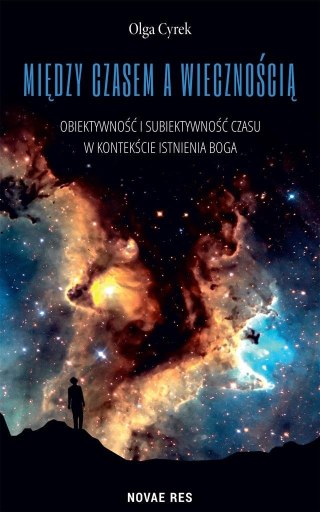Koszyk (0)
Koszyk jest pusty
Do bezpłatnej dostawy brakuje
-,--
Darmowa dostawa!
Suma
0.00 zł
Cena uwzględnia rabaty
Strona korzysta z plików cookies zgodnie z Polityką Cookies w celu realizacji usług. Korzystanie z witryny oznacza, że będą one umieszczane w Twoim urządzeniu końcowym. Możesz określić warunki przechowywania lub dostępu do plików cookies w Twojej przeglądarce.
-
Kategorie
-
Artykuł szkolne i papiernicze
- Bloki
- Cienkopisy
- Cyrkle
- Długopisy
- Druki i formularze
- Dziurkacze
- Farbki
- Flamastry
- Glina
- Globusy
- Gumki
- Kalkulatory
- Kleje
- Koperty
- Korektory
- Kostki, bloczki samoprzylepne
- Kosze
- Kreatywne
- Kreda
- Kredki
- Linijki
- MAGNESY
- Makijaż
- Markery
- Masy plastyczne
- Naklejki
- Notatniki
- Nożyczki
- Okładki
- Ołówki
- Organizery
- Pamiętnik
- Papeteria
- Papier kancelaryjny
- Papier kolorowy
- Papier ksero
- Pędzelki
- Pinezki, spinacze, zszywki
- Pióra
- Piórniki
- Planery
- Plany lekcji
- Plastelina
- Plecaki
- Pomoce Naukowe
- Segregatory
- Skoroszyty
- Skorowidze
- Stempelki
- Szablony
- Tablice
- Taśmy
- Teczki
- Tekstylia
- Temperówki
- Tuby
- Tusze
- Worki na buty
- Zakładki do książek
- Zakładki indeksujące
- Zakreślacze
- Zestawy
- Zestawy szkolne
- Zeszyty
- Zszywacze
-
Audiobooki
- Bajki
- Baśnie
- Biografie
- Dla dzieci
- Dla młodzieży
- Dzienniki, pamiętniki
- Ekonomia i biznes
- Fantastyka, fantasy
- Felietony
- Historia
- Horror
- Kryminał
- Lektury
- Literatura faktu, reportaż
- Literatura polska
- Obyczajowa
- Opowiadania
- Podróże
- Poradniki
- Powieść
- Proza
- Przygodowa
- Psychologia
- Psychologia, Socjologia
- Religia
- Romans
- Sensacja
- Dla dzieci i młodzieży
- Gry planszowe
-
Języki obce
- Albański
- Angielski
- Arabski
- Białoruski
- Chiński
- Chorwacki
- Czeski
- Duński
- Estoński
- Filipiński
- Francuski
- Grecki
- Gruziński
- Hebrajski
- Hindi
- Hiszpański
- Holenderski
- Indonezyjski
- Islandzki
- Japoński
- Koreański
- Litewski
- Łaciński
- Łotewski
- Macedoński
- Niderlandzki
- Niemiecki
- Norweski
- Ormiański
- Perski
- Polski
- Portugalski
- Rosyjski
- Rumuński
- Serbski
- Słowacki
- Słoweński
- Szwedzki
- Tajski
- Turecki
- Ukraiński
- Węgierski
- Wietnamski
- Włoski
-
Lego®
- Animal Crossing
- Architecture
- Art
- Avatar
- Batman
- Boost
- City
- Classic
- Creator
- Disney
- Disney Princess
- Dots
- Dreamzzz
- Duplo
- Elves
- Flowers
- Friends
- Functions
- Harry Potter
- Gabby's Dollhouse
- Icons
- Ideas
- Indiana Jones
- Juniors
- Jurassic World
- MARVEL
- Mickey and Friends
- Mindstorms
- Minecraft
- Minions
- Ninjago
- Lego Dodatki
- Opakowania Zbiorcze
- Speed Champions
- Star Wars
- Super heroes
- Super Mario
- Technic
- Trolls
- Vidiyo
- Nagrodówka2025
-
Literatura
- Aforyzmy
- Antropologia
- Archeologia
- Architektura
- Astrologia
- Astronomia
- Biografie
- Biznes
- Czasopisma
- Dla dorosłych
- Dokument
- Dramat
- Dzienniki, pamiętniki
- Ekologia
- Ekonomia
- Ekonomia i biznes
- Erotyka
- Eseje
- Etyka
- Ezoteryka
- Fantastyka
- Felietony
- Film
- Filozofia
- Finanse
- Historia
- Historyczne
- Hobby
- Horror
- Humanistyka
- Humor
- Informatyka
- Inne
- Językoznawstwo
- Języki obce
- Klasyka obca
- Komiks
- Kryminał
- Kulinaria
- Kultura
- Legendy
- Listy
- Literatura faktu, reportaż
- Literaturoznawstwo
- Logistyka
- Malarstwo
- Marketing
- Medioznawstwo
- Medycyna
- Militaria
- Motoryzacja
- Muzyka
- Nauka i technika
- Nauki humanistyczne
- Obyczajowa
- Opowiadania
- Opowieść
- Pamiętnik
- Pedagogika
- Podróże
- Poezja
- Poezja, dramat
- Polityka, Politologia
- Popularnonaukowa
- Poradniki
- Powieść
- Prawo
- Proza
- Proza współczesna
- Przewodniki
- Przygodowa
- Psychiatria
- Psychologia
- Publicystyka
- Reklama
- Religia
- Romans
- Senniki
- Sensacja
- Socjologia
- Sport
- Sztuka
- Thriller
- Ukraińska
- Wiersze
- Wojenne
- Wspomnienia
- Wywiady
- Zarządzanie
- Zdrowie
- Zdrowie i uroda
- Zwierzęta
- Literatura szkolna
- Podręczniki
-
Puzzle
- Akcesoria
- Baby puzzle
- Dla najmłodszych
- Edukacyjne
- Od 10 do 60 elementów
- Przestrzenne
- Sensoryczne
- Zestawy
- 104 elementy
- 500 elementów
- 1000 elementów
- 70 elementów
- 80 elementów
- 100 elementów
- 108 elementów
- 120 elementów
- 150 elementów
- 160 elementów
- 180 elementów
- 200 elementów
- 250 elementów
- 260 elementów
- 300 elementów
- 600 elementów
- 2000 elementów
- 1500 elementów
- 3000 elementów
- 4000 elementów
- 6000 elementów
- Komiksy
- Książki na prezent
- OFERTA NAGRODOWA 2025
-
Artykuł szkolne i papiernicze
- Nowości
- Polecamy
- Lektury szkolne
- Nagrody Szkolne 2025
- Wyprzedaże do -90%
- Kontakt
-
Kategorie
-
Bloki
-
Cienkopisy
-
Cyrkle
-
Długopisy
-
Druki i formularze
-
Dziurkacze
-
Farbki
-
Flamastry
-
Glina
-
Globusy
-
Gumki
-
Kalkulatory
-
Kleje
-
Koperty
-
Korektory
-
Kostki, bloczki samoprzylepne
-
Kosze
-
Kreatywne
-
Kreda
-
Kredki
-
Linijki
-
MAGNESY
-
Makijaż
-
Markery
-
Masy plastyczne
-
Naklejki
-
Notatniki
-
Nożyczki
-
Okładki
-
Ołówki
-
Organizery
-
Pamiętnik
-
Papeteria
-
Papier kancelaryjny
-
Papier kolorowy
-
Papier ksero
-
Pędzelki
-
Pinezki, spinacze, zszywki
-
Pióra
-
Piórniki
-
Planery
-
Plany lekcji
-
Plastelina
-
Plecaki
-
Pomoce Naukowe
-
Segregatory
-
Skoroszyty
-
Skorowidze
-
Stempelki
-
Szablony
-
Tablice
-
Taśmy
-
Teczki
-
Tekstylia
-
Temperówki
-
Tuby
-
Tusze
-
Worki na buty
-
Zakładki do książek
-
Zakładki indeksujące
-
Zakreślacze
-
Zestawy
-
Zestawy szkolne
-
Zeszyty
-
Zszywacze
-
Bajki
-
Baśnie
-
Biografie
-
Dla dzieci
-
Dla młodzieży
-
Dzienniki, pamiętniki
-
Ekonomia i biznes
-
Fantastyka, fantasy
-
Felietony
-
Historia
-
Horror
-
Kryminał
-
Lektury
-
Literatura faktu, reportaż
-
Literatura polska
-
Obyczajowa
-
Opowiadania
-
Podróże
-
Poradniki
-
Powieść
-
Proza
-
Przygodowa
-
Psychologia
-
Psychologia, Socjologia
-
Religia
-
Romans
-
Sensacja
-
Albański
-
Angielski
-
Arabski
-
Białoruski
-
Chiński
-
Chorwacki
-
Czeski
-
Duński
-
Estoński
-
Filipiński
-
Francuski
-
Grecki
-
Gruziński
-
Hebrajski
-
Hindi
-
Hiszpański
-
Holenderski
-
Indonezyjski
-
Islandzki
-
Japoński
-
Koreański
-
Litewski
-
Łaciński
-
Łotewski
-
Macedoński
-
Niderlandzki
-
Niemiecki
-
Norweski
-
Ormiański
-
Perski
-
Polski
-
Portugalski
-
Rosyjski
-
Rumuński
-
Serbski
-
Słowacki
-
Słoweński
-
Szwedzki
-
Tajski
-
Turecki
-
Ukraiński
-
Węgierski
-
Wietnamski
-
Włoski
-
Animal Crossing
-
Architecture
-
Art
-
Avatar
-
Batman
-
Boost
-
City
-
Classic
-
Creator
-
Disney
-
Disney Princess
-
Dots
-
Dreamzzz
-
Duplo
-
Elves
-
Flowers
-
Friends
-
Functions
-
Harry Potter
-
Gabby's Dollhouse
-
Icons
-
Ideas
-
Indiana Jones
-
Juniors
-
Jurassic World
-
MARVEL
-
Mickey and Friends
-
Mindstorms
-
Minecraft
-
Minions
-
Ninjago
-
Lego Dodatki
-
Opakowania Zbiorcze
-
Speed Champions
-
Star Wars
-
Super heroes
-
Super Mario
-
Technic
-
Trolls
-
Vidiyo
-
Aforyzmy
-
Antropologia
-
Archeologia
-
Architektura
-
Astrologia
-
Astronomia
-
Biografie
-
Biznes
-
Czasopisma
-
Dla dorosłych
-
Dokument
-
Dramat
-
Dzienniki, pamiętniki
-
Ekologia
-
Ekonomia
-
Ekonomia i biznes
-
Erotyka
-
Eseje
-
Etyka
-
Ezoteryka
-
Fantastyka
-
Felietony
-
Film
-
Filozofia
-
Finanse
-
Historia
-
Historyczne
-
Hobby
-
Horror
-
Humanistyka
-
Humor
-
Informatyka
-
Inne
-
Językoznawstwo
-
Języki obce
-
Klasyka obca
-
Komiks
-
Kryminał
-
Kulinaria
-
Kultura
-
Legendy
-
Listy
-
Literatura faktu, reportaż
-
Literaturoznawstwo
-
Logistyka
-
Malarstwo
-
Marketing
-
Medioznawstwo
-
Medycyna
-
Militaria
-
Motoryzacja
-
Muzyka
-
Nauka i technika
-
Nauki humanistyczne
-
Obyczajowa
-
Opowiadania
-
Opowieść
-
Pamiętnik
-
Pedagogika
-
Podróże
-
Poezja
-
Poezja, dramat
-
Polityka, Politologia
-
Popularnonaukowa
-
Poradniki
-
Powieść
-
Prawo
-
Proza
-
Proza współczesna
-
Przewodniki
-
Przygodowa
-
Psychiatria
-
Psychologia
-
Publicystyka
-
Reklama
-
Religia
-
Romans
-
Senniki
-
Sensacja
-
Socjologia
-
Sport
-
Sztuka
-
Thriller
-
Ukraińska
-
Wiersze
-
Wojenne
-
Wspomnienia
-
Wywiady
-
Zarządzanie
-
Zdrowie
-
Zdrowie i uroda
-
Zwierzęta
-
Akcesoria
-
Baby puzzle
-
Dla najmłodszych
-
Edukacyjne
-
Od 10 do 60 elementów
-
Przestrzenne
-
Sensoryczne
-
Zestawy
-
104 elementy
-
500 elementów
-
1000 elementów
-
70 elementów
-
80 elementów
-
100 elementów
-
108 elementów
-
120 elementów
-
150 elementów
-
160 elementów
-
180 elementów
-
200 elementów
-
250 elementów
-
260 elementów
-
300 elementów
-
600 elementów
-
2000 elementów
-
1500 elementów
-
3000 elementów
-
4000 elementów
-
6000 elementów
Artykuł szkolne i papierniczeAudiobookiJęzyki obceLego®LiteraturaPuzzle -
- Nowości
- Polecamy
- Lektury szkolne
- Nagrody Szkolne 2025
- Wyprzedaże do -90%
- Kontakt
-
- Ulubione
-
-
Koszyk (0)Koszyk jest pustyDo bezpłatnej dostawy brakuje -,--Darmowa dostawa!Realizuj zamówienieSuma 0.00 złCena uwzględnia rabaty
-



Invisible Fire. Memory, Tradition and the Self
Symbol:
Dostępność:
4
szt.
![]()
84.42
Zamówienie telefoniczne: 791572838 Zostaw telefon
Wysyłka w ciągu:
3 dni
Cena przesyłki:
7.99
- Odbiór osobisty 0
- DPD Pickup punkt odbioru / automat paczkowy 7.99
- Paczkomaty InPost 12.99
- Kurier DPD 14.99
- Kurier INPOST 14.99
- Kurier DPD Pobranie 19.99
Więcej o produkcie
Autor:
Joanna Jurewicz
Wydawnictwo:
Elipsa Dom Wydawniczy
Rok wydania:
2021
Oprawa:
twarda
Waga
0.15 kg
Kod kreskowy:
EAN:
9788380173118
In the second chapter we discuss the implications of creation conceived as presented in the first chapter. It will be shown that adopting the assumption about the primarily cognitive nature of creation allows for a new look at the ontology presented in the early Smti. Its basic implication are two perspectives as to how reality can be described. These two perspectives are already described by Yjavalkya in BU 34.
The third chapter is devoted to a discussion of wrong cognition. It is argued that philosophical anthropology can be explained on the basis of the subject-object cognition scenario in terms of which the functioning of the cosmos is conceived. Wrong cognition causes man to treat the epistemic division of reality as ontic and himself as an ontically separate subject. Since cognition precedes being the way man thinks has ontic results.
In the fourth chapter, we consider liberating cognition which is the opposite process to wrong cognition and consists of the decompression of the amalgamate agent, the radical transformation of consciousness and a change of cognitive perspectives from the perspective of the particular subject to the
perspective of reality. We can call this the process of subjectivisation'. It begins with the proper desire to cognise oneself i.e., the unmanifest self of man.
The fifth chapter is an analysis of the early Smti thought using some theories proposed in the humanities. The first two are developed within the framework of cognitive linguistics.. The third section of this chapter is devoted to the analysis of the theories of play (beginning with Johan Huizinga), philosophy (Eugen Fink, Hans-Georg Gadamer) and psychoanalysis (Donald Winnicott) and the possible use of these approaches to analyse early Smti thought. In the fourth section, we look at the concept of karman through the lens of the theory of responsibility proposed by Roman Ingarden to show the moral dimension of the early Hindu theory of action.
Autor:
Joanna Jurewicz
Wydawnictwo:
Elipsa Dom Wydawniczy
Rok wydania:
2021
Oprawa:
twarda
-
Polecamy
-
Produkty podobne
35.09
31.43
55.86
15.29
![[{[item.product.name]}]]([{[item.product.photo.url]}] 75w)

















